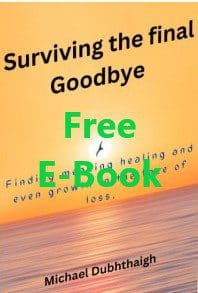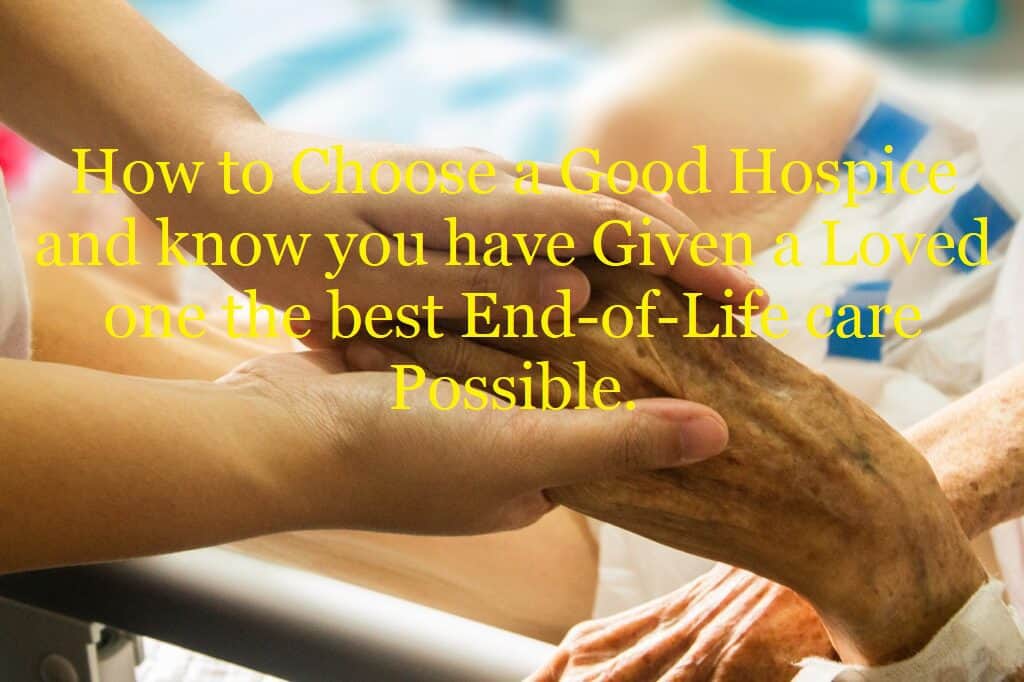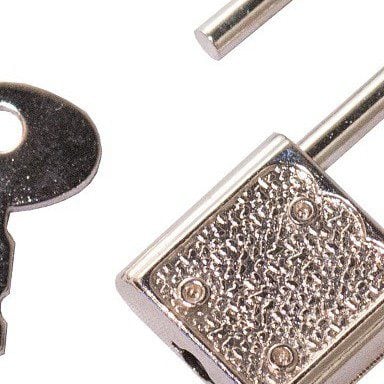
The philosophy of hospice was imported to the United States in the 1960s by Dame Cicely Saunders, an English doctor and social worker who’d grown appalled by the “wretched habits of big, busy hospitals where everyone tiptoes past the bed and the dying soon learn to pretend to be asleep.” Hospice health care.
In her book “On Death and Dying,” Swiss-born psychiatrist Elisabeth Kübler-Ross mentioned how some of her subjects related how lonely and harsh it felt to be in an intensive-care unit, separated from family. Many Americans who read the book came away convinced that end-of-life care in hospitals was inhumane.
How to Choose a Good Hospice
In the USA, hospice facility beds are generally reserved for patients with acute care needs that exceed the ability of home caregivers to provide.
Doing some in-depth research on Hospices yourself is a good place to start.
- Check the Better Business Bureau in your State, for accreditations, certifications, and complaints.
- Know about the kind of services each hospice offers. Backup services, medications for managing pain relief, staffing levels etc.
- Ask around. Professional caregivers, or end-of-life Doulas will have in-depth knowledge. The more people you can get information from, the better.
- You check their references by speaking to other family members who have used the facility
- Check all of the agencies in your area to see if they have had complaints.
Not all Hospices are Equal
A US government review of inspection reports from 2012 to 2016 found that the majority of all hospices had serious deficiencies such as failures to train staff, manage pain and treat bedsores. Pocket
Some of the large businesses investigated have been shown to be corrupt, with kickbacks, falsely admitting people to hospice care, and patients not receiving care, as well some companies have faced criminal charges for defrauding medicare.
In 2018, the Office of Inspector General at the Department of Health and Human Services estimated that inappropriate billing by hospice providers had cost taxpayers “hundreds of millions of dollars.” Others say the figure is much higher.
Hospice helthcare
For professional doulas and other caregivers, who provide an intimate, holistic, and vital service, it must have been devastating to see Hospice fraud as the government’s top target for fraudulent recoveries.
This guide, adapted from the Senior Medicare Patrol for the prevention of medicare fraud (a grantee of the Administration for Community Living at HHS), assists Medicare beneficiaries, families, and their caregivers to prevent, detect, and report healthcare fraud, errors, and abuse.
It is now more common for hospices, nursing and retirement homes, and hospitals, to hire certified end-of-life doulas for ongoing work, whereas previously they relied on volunteer staff, doulas supplied by funeral homes, priests, rabbis, etc.
The guide (link above), can be of great help in selecting a good hospice.
Covid created (among other disasters), another round of creative accounting, and although your focus is the well-being of your family member, keeping an eye on the broader picture around you can help detect looming problems.
Staffing changes or high staff turnover could be red flags.
If you are unsure then don’t be afraid to ask an experienced outside advocate for advice.
Should the Family invest in an Advocate before Choosing a Hospice?
There is a big difference between Hospital care and Hospice care.
Hospital care is the domain of the doctor. He is the one in charge of the treatments and everyone, including the patient and nursing staff are expected to follow his directions, and report any changes in the patient’s condition to the doctor, who may make changes to the treatment. All of this is information is recorded in a chart and kept on the patient’s bed.
Hospice care is a little more “democratic.” The expectation is that the patient is consulted and always figures into the treatment plan. and discharge plan even if that is end-of-life.
It is the advocate’s job to check that the hospice is delivering the care that the patient desires rather than what the hospice, its doctors, or even the family wants.
The advocate is only there to recommend the options for the best care available for the patient.
As far as an independent professional advocate is concerned (or should be), it is patient first, and everyone else is secondary, including family, doctors, and nursing staff.
Advocates are able (and do), to call authorities if they have knowledge a patient is being treated poorly.
Knowing a family member is about to die is stressful, and a good advocate can help put everything into a realistic perspective.
The past few years have been Stressful for many People.
Many have lost faith in institutions that they once believed in and are taking on tasks they would have once entrusted to these institutions.
Researching to find the best options available to you is even more important now than ever before.
Death comes to all of us at some point, and for those who cannot choose the circumstances of their death, their death need not be a lonely, painful experience.
A Free helpful E-Book for you.

Grief is an intricate emotion, often likened to a journey through a maze with its unique twists, turns, and challenges. Though everyone’s experience with grief is personal, there are shared elements that many encounter.
By understanding these aspects and equipping oneself with coping mechanisms and supportive environments, it’s possible to find meaning, healing, and even growth in the face of loss.
You can get the e-book by clicking here or by clicking on the image.
Thanks for reading.










